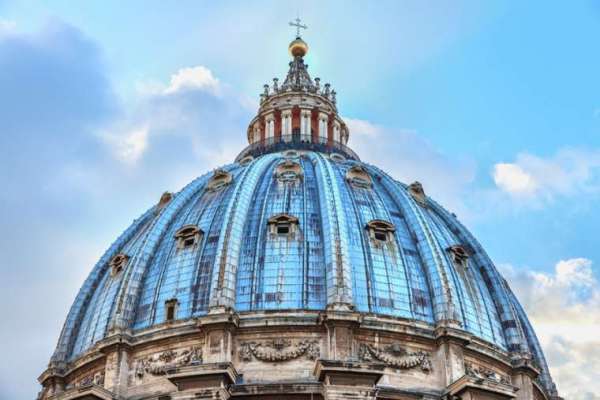Vatican: Baptisms administered "in the name of the community" are not valid

The Vatican doctrinal office issued a clarification on the sacrament of baptism Thursday, saying changes to the formula to emphasize community participation are not allowed.
The Congregation for the Doctrine of the Faith answered a question as to whether it was valid to administer the sacrament of baptism by saying: "We baptize you in the name of the Father and of the Son and of the Holy Spirit."
The formula of baptism, according to the Catholic Church, is "I baptize you in the name of the Father and of the Son and of the Holy Spirit".
The CDF decreed on 6 August all baptisms administered with the formula "let's baptize" are invalid and all those for whom the sacrament was celebrated with this formula must be baptized in absolute form, which means that the person should be considered like not having received the sacrament yet.
The Vatican said it was answering questions about the validity of baptism after recent celebrations of the sacrament of baptism used the words "In the name of father and mother, godfather and godmother, grandparents, family members, friends , in the name of the community we baptize you in the name of the Father and of the Son and of the Holy Spirit ”.
The response was approved by Pope Francis and signed by the prefect CDF Cardinal Luis Ladaria and by the secretary Archbishop Giacomo Morandi.
A doctrinal note of the CDF of August 6 said “with questionable pastoral reasons, here the ancient temptation to replace the formula handed down by Tradition with other texts deemed more suitable reappears”.
Quoting the Sacrosanctum Concilium of the Second Vatican Council, the note made it clear that "no one, even if he were a priest, can add, remove or change anything in the liturgy by his own authority". "
The reason for this, the CDF explained, is that when a minister administers the sacrament of baptism, "it is Christ himself who baptizes".
The sacraments were instituted by Jesus Christ and "are entrusted to the Church to be preserved by her," the congregation said.
"When he celebrates a sacrament", he continued, "the Church actually functions as the Body that acts inseparably from its Head, since it is Christ the Head who acts in the ecclesial Body generated by him in the paschal mystery".
"It is therefore understandable that over the centuries the Church has safeguarded the form of the celebration of the Sacraments, especially in those elements to which the Scripture attests and which make it possible to recognize with absolute clarity the gesture of Christ in the ritual action of the Church" clarified the Vatican .
According to the CDF, the "deliberate modification of the sacramental formula" to use "we" instead of "I" seems to have been made "to express the participation of the family and those present and to avoid the idea of the concentration of sacred power in the priest to the detriment of parents and the community “.
In a footnote, the note from the CDF explained that in reality the rite of baptism of children of the Church already includes active roles for parents, godparents and the entire community in the celebration.
According to the provisions of the Sacrosanctum Concilium, "every person, minister or layman, who has an office to perform, should do all, but only, those parts that belong to his office by the nature of the rite and the principles of liturgy."
The minister of the sacrament of baptism, whether he is a priest or a layman, is "the presence-sign of the One who gathers, and is at the same time the place of communion of every liturgical assembly with the whole Church", the explanatory note She said.
"In other words, the minister is the visible sign that the Sacrament is not subject to arbitrary action by individuals or communities and that it belongs to the universal Church".